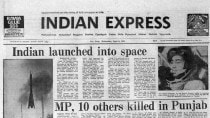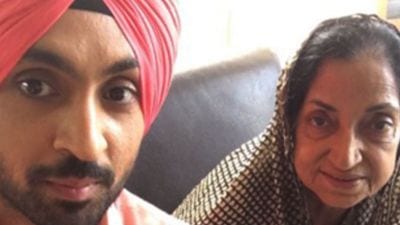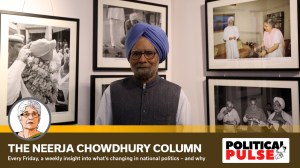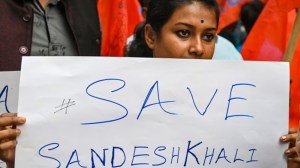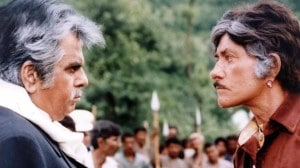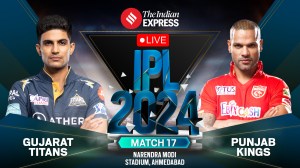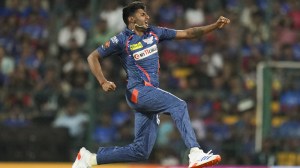- India
- International
Best of Both Sides: ‘400 Paar’ is a measure for Amrit Kaal, not hegemony
The target isn't about hegemony. It is to show old faultlines have been transcended.
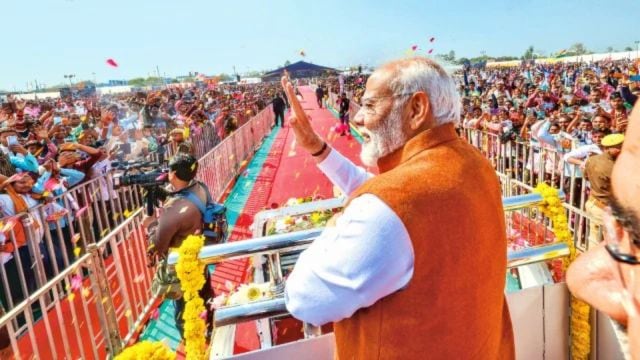 PM Modi’s undiminished efforts to involve the public in governance and political work and his constant dialogue with the people have placed him in a unique position on the political spectrum. (ANI)
PM Modi’s undiminished efforts to involve the public in governance and political work and his constant dialogue with the people have placed him in a unique position on the political spectrum. (ANI)The Bharatiya Janata Party (BJP), under the leadership of Prime Minister Narendra Modi, has set itself the task of securing 400-plus seats. For party workers, this achievement would reflect an expanded social base and the endorsement of an ideology that was excluded by “mainstream” politics for decades. However, a section of intellectuals decry this rallying cry as an “undemocratic move” meant to marginalise the Opposition.
Democracy is about more than numerical strength. It is an engagement with both issues and the people. It is the precondition for public morality and well-being. The effectiveness of any “number” that a political party or formation enjoys can be gauged by its impact on the collective consciousness of the people. The numerical strength of a political party is delegitimised if it fails in this regard.
PM Modi’s undiminished efforts to involve the public in governance and political work and his constant dialogue with the people have placed him in a unique position on the political spectrum. Never before have the masses interacted with the highest political office in a democracy so frequently and with such intensity. The slogan of “400 par” is meant to test this outreach. It also indicates the end of an era of fractured Indian politics where the post-election composition of the legislature and governments reflected those divides.
Masquerading as champions of secular democracy or social justice, political forces encouraged the segmentation of Indian society. Their leaders enjoyed the fruits of unhindered political feudalism. Their claims to modernity failed, given how their politics operated on the social and cultural planes. This form of modernity creates a psychological condition that pushes even enlightened people to think in terms of narrow identities.
PM Modi inaugurated a discourse that made the socio-economic interpretation of society a sine qua non for politics. This was once the monopoly of socialists and communists. His focus on the youth, women, farmers and the poor — what he called the four “new castes” — enlivens Indian modernity. It has the potential to liberate society from the baggage of narrow identities. The era of Congress rule was one of lost opportunities.

In the first general election, Congress under Jawaharlal Nehru secured 364 seats out of 489 — a nearly 2/3rds majority. In the 1962 election, the number marginally declined, but remained more than 70 per cent of the Lok Sabha. However, the colonial pattern continued. In that scenario, despite their diminished strength, the Opposition — including socialists, communists, Swatantra Party and the Bharatiya Jana Sangh — had an impact both inside and outside the House.
They were not dwarfed merely because of their numbers in the House. Their commitment to pro-people values and their confrontation with the ruling party was intact. They even influenced the inner dynamics of the ruling party. Leaders like Piloo Mody, Minoo Masani, J B Kripalani, Atal Bihari Vajpayee, Bhupesh Gupta and P Sundarayya were stalwarts not by virtue of the strength their parties commanded in Parliament, but for their idealism and wisdom. Jana Sangh leader Deendayal Upadhyaya, who was never a parliamentarian, wrote The Two Plans, in which he critiqued European models of economic development and pointed out the reasons for the failure of the first and second Five-Year Plans. He used empirical tools to caution the policymakers, and his work drew the attention of leaders from across the political spectrum.
Under Modi, elitism is no longer the basis of the Indian state. Earlier, elections were the only mode for democratic outreach. State programmes and policies have today become visible tools for democratic engagement.
Modi’s tenure has been about goals and the passion to achieve them. People want a similar rigour and passion in their MPs. Another of the PM’s contributions is making party workers the bridge between state-sponsored programmes and their beneficiaries. It has enhanced the role and accountability of MPs. Unlike ministers and bureaucrats, MPs do not have any executive power. Their power emanates from parliamentary privileges granted to them. An MP’s popularity and capacity to impact policies depends on how much she/he uses the privilege of the office to represent those deprived and marginalised and links local needs with universal ideas.
India lacks think tanks and organisations that constantly monitor MPs. Anti-incumbency indices for every MP can help keep democracy vibrant. The academia too has failed in this respect — journalistic contributions have been far greater.
Democracy is a competition to win over the people. There are four tools open to a political party to maximise its support base: Cultural philosophy, economic programmes and policies, the hard work of party cadres and the collective moral appeal of the party. A lack in any of them stymies its growth. For instance, the decline of the Indian Left is not due to a radical change in the material conditions of society but due to their failure to address the realities. They spent more time in seminar rooms than with farmers and workers. Similarly, the Congress used its hegemony to hide its shrinking political morality. Shankarrao Deo, once Congress president, expressed the pain of millions of party workers in his three lectures on the decline of the Congress in 1949. Both Indira Gandhi and Rajiv Gandhi used their unprecedented mandate to poor effect. In a very short span, their base eroded.
Modi’s mission “400 par” is intended for Amrit Kaal, not hegemony. The Opposition lacks both the vision and capacity for action to match the BJP under Modi.
The writer is BJP Member of Parliament, Rajya Sabha
EXPRESS OPINION
More Explained
Apr 04: Latest News
- 01
- 02
- 03
- 04
- 05


